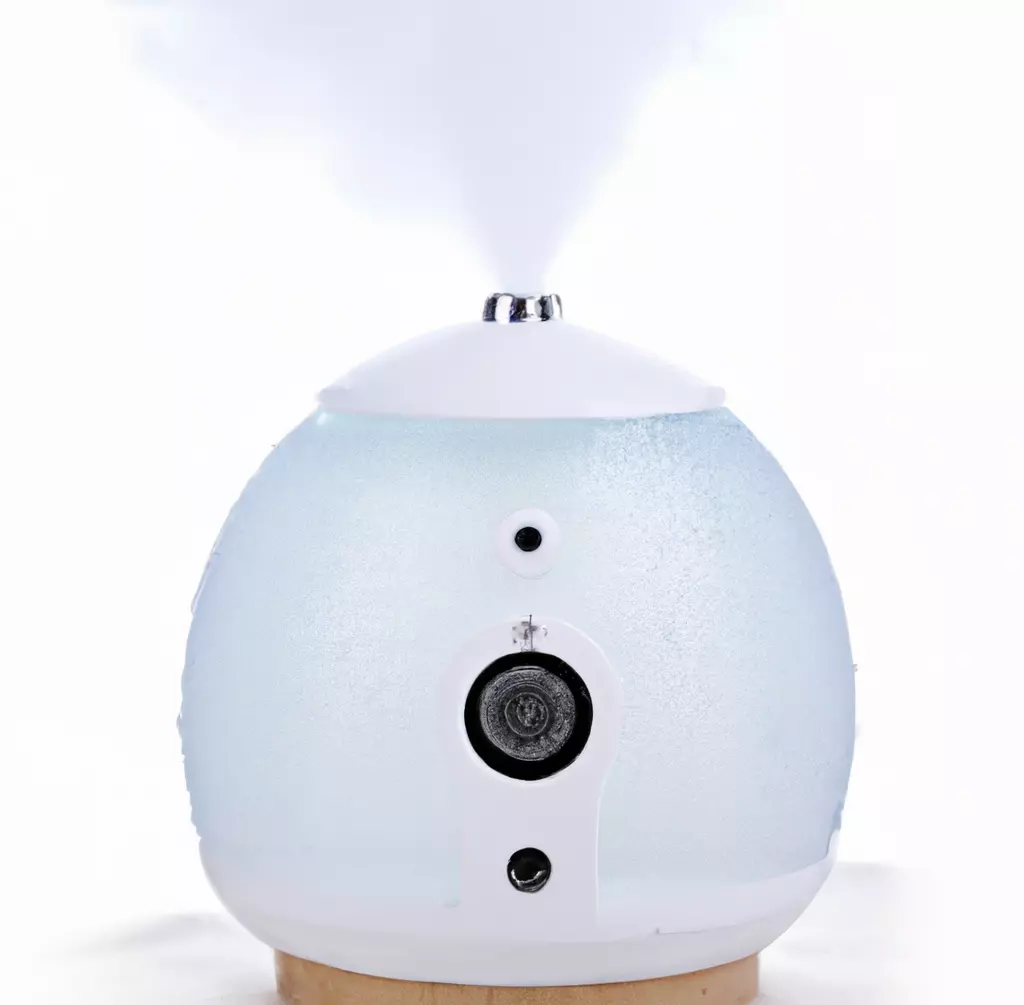Improve your home’s air quality, comfort, and health with a central humidifier.
Our comprehensive guide covers everything you need to know about these handy devices, including how they work, the types available, and how to maintain them for optimal performance properly.
You may have considered purchasing a humidifier if you live in a dry climate or have a home with low humidity.
A central humidifier is installed in your home’s HVAC (heating, ventilation, and air conditioning) system to add moisture to the air throughout your home.
Definition of a central humidifier:
A central humidifier is a type of humidifier that is installed in your home’s HVAC system. It adds moisture to the air as it circulates throughout your home via air ducts.
This allows for a more consistent humidity level throughout your home rather than just in a single room.
Why is it essential to have one in your home?
Maintaining proper humidity levels in your home is important for several reasons. Firstly, it can help to alleviate dryness in the air, which can be especially beneficial for those with dry skin, allergies, or respiratory issues.
Proper humidity levels can also help prevent damage to wood furniture and floors and reduce static electricity.
In addition, maintaining proper humidity levels can help to make your home feel more comfortable, as dry air can make it feel colder than it actually is.
The Benefits of Using a Central Humidifier:
There are several benefits to using a central humidifier in your home. Some of the most notable include:
- Improved air quality: By adding moisture to the air, a central humidifier can help reduce dust and other allergens in your home. This can be especially beneficial for those with allergies or respiratory issues.
- Increased comfort: Dry air can make your home feel colder than it actually is, which can be uncomfortable. A central humidifier can help to make your home feel more comfortable by adding moisture to the air.
- Health benefits: Proper humidity levels can help to alleviate dry skin, allergies, and respiratory issues. A central humidifier can help to maintain proper humidity levels in your home, which can have many health benefits.
- Protects your home: Maintaining proper humidity levels can help prevent damage to wood furniture and floors and reduce static electricity. A central humidifier can help to protect your home by maintaining proper humidity levels.
How a Central Humidifier Works?
A central humidifier is installed in your home’s HVAC system and is connected to your air ducts. When your HVAC system runs, the central humidifier adds moisture to the air as it is circulated throughout your home.
Installation and connection to your HVAC system:
Installing a central humidifier typically requires the services of a professional HVAC technician. The technician will first assess your home’s HVAC system to determine the best location for the humidifier.
The humidifier is installed near your furnace or air handler and connected to your home’s water supply. Once installed, the humidifier is connected to your HVAC system through a series of tubes or ducts.
Process of adding moisture to the air:
The process of adding moisture to the air through your HVAC system begins when the central humidifier is activated.
Water is drawn from your home’s water supply and is then transported to the humidifier via a series of tubes or ducts.
Once inside the humidifier, the water is dispersed into the air through a series of small nozzles or by passing over a wet wick or pad. The moistened air is then circulated throughout your home via your HVAC system’s air ducts.
The amount of moisture that is added to the air is typically controlled by a humidistat, which measures the humidity levels in your home and adjusts the humidifier accordingly.
The central humidifier will continue to add moisture to the air until the desired humidity level is reached, at which point it will shut off until the humidity levels drop again.
Overall, a central humidifier is a convenient and effective way to add moisture to your home’s air, helping maintain proper humidity levels and improve overall comfort.
Types Of Central Humidifiers
Several different types of central humidifiers are available, each with unique features and benefits. Some of the most common types of central humidifiers include:
- Whole-house humidifiers:
Whole-house humidifiers are the most common type of central humidifier. They are installed in your home’s HVAC system and are designed to add moisture to the air throughout your entire home.
Whole-house humidifiers are typically the most cost-effective option, as they do not require the purchase of separate humidifiers for each room.
- Drum humidifiers:
Drum humidifiers are a type of central humidifier that uses a rotating drum to disperse water into the air. The drum is filled with water, and as it rotates, the water is distributed into the air through a series of small nozzles.
Drum humidifiers are relatively easy to maintain, but they can be noisy and may require more frequent cleaning than other types of humidifiers.
- Bypass humidifiers:
Bypass humidifiers are central humidifiers that pass the air from your HVAC system through a wet pad or wick. As the air passes through the wet pad or wick, moisture is added to the air.
Bypass humidifiers are relatively easy to install and maintain, but they may not be as effective at adding moisture to the air as other types of humidifiers.
Comparison of the pros and cons of each type of central humidifier:
Whole-house humidifiers:
Pros – cost-effective, adding moisture to the air throughout your home.
Cons – may require professional installation and may be more expensive to operate than other types of humidifiers.
Drum humidifiers:
Pros – easy to maintain, relatively inexpensive.
Cons – can be noisy and require more frequent cleaning than other humidifiers.
Bypass humidifiers:
Pros – easy to install, relatively easy to maintain.
Cons – may not be as effective at adding moisture to the air as other types of humidifiers.
Overall, the best type of central humidifier for you will depend on your specific needs and budget. It is important to consider the pros and cons of each type of humidifier before making a decision.
Maintenance and care of a central humidifier
Proper maintenance and care are essential for keeping your central humidifier in good working order. Some tips for maintaining your central humidifier include:
- Follow the manufacturer’s instructions for cleaning and maintenance. Most central humidifiers will require regular cleaning to remove the build-up of minerals and other contaminants.
- Replace the humidifier filter regularly. The central humidifier’s filter helps remove impurities from the water before it is dispersed into the air. Replacing the filter regularly will help ensure that your humidifier operates at its best.
- Check the water supply lines for leaks. Over time, the water supply lines to your central humidifier may become damaged or develop leaks. It is important to check the lines regularly and repair any leaks to prevent damage to your humidifier and home.
- Check the humidity levels in your home regularly. Proper humidity levels are important for maintaining the health and comfort of your home. Investing in a humidistat will help you monitor and maintain the humidity levels in your home is a good idea.
The importance of regularly cleaning and maintaining:
Regular cleaning and maintenance are essential for several reasons.
Firstly, it will help ensure that your humidifier operates at its best and effectively adds moisture to the air.
In addition, regular cleaning and maintenance will help to prevent the build-up of minerals and other contaminants, which can lead to clogs and reduced performance.
Finally, correctly maintaining your central humidifier will help to extend its lifespan, saving you money on costly repairs or replacements in the long run.
Conclusion
In summary, a central humidifier is a valuable addition to any home, especially in dry climates or with low humidity levels.
By adding moisture to the air throughout your home, a central humidifier can help to improve air quality, increase comfort, and provide several health benefits.
There are several different types of central humidifiers available, each with its own unique features and benefits, so it is important to consider your specific needs before making a decision.
Proper maintenance and care are essential for keeping your central humidifier in good working order and ensuring optimal performance.
Following the manufacturer’s instructions and regularly cleaning and maintaining your humidifier can help extend its lifespan and enjoy its many benefits.
FAQs
Here are some common questions about using a humidifier
1. How does a central humidifier work?
It is installed in your home’s HVAC system and adds moisture to the air as it is circulated throughout your home.
2. What are the different types of central humidifiers?
Some common types of central humidifiers include whole-house humidifiers, drum humidifiers, and bypass humidifiers.
3. How do I maintain my central humidifier?
Proper maintenance and care of your humidifier are essential for optimal performance. Follow the manufacturer’s instructions for cleaning and maintenance, replace the humidifier filter regularly, check the water supply lines for leaks, and check the humidity levels in your home regularly.
4. Can a central humidifier help with allergies?
Yes, it can help with allergies by adding moisture to the air, and reducing the dust and other allergens in your home. This can be especially beneficial for those with allergies or respiratory issues.
5. Can a central humidifier help to reduce static electricity in my home?
Yes, maintaining proper humidity levels in your home can help to reduce static electricity. When the air is too dry, static electricity is more likely to build up.
A central humidifier can help to maintain proper humidity levels, which can, in turn, reduce static electricity.



Pingback: Types of Humidifiers: What's The Best One?